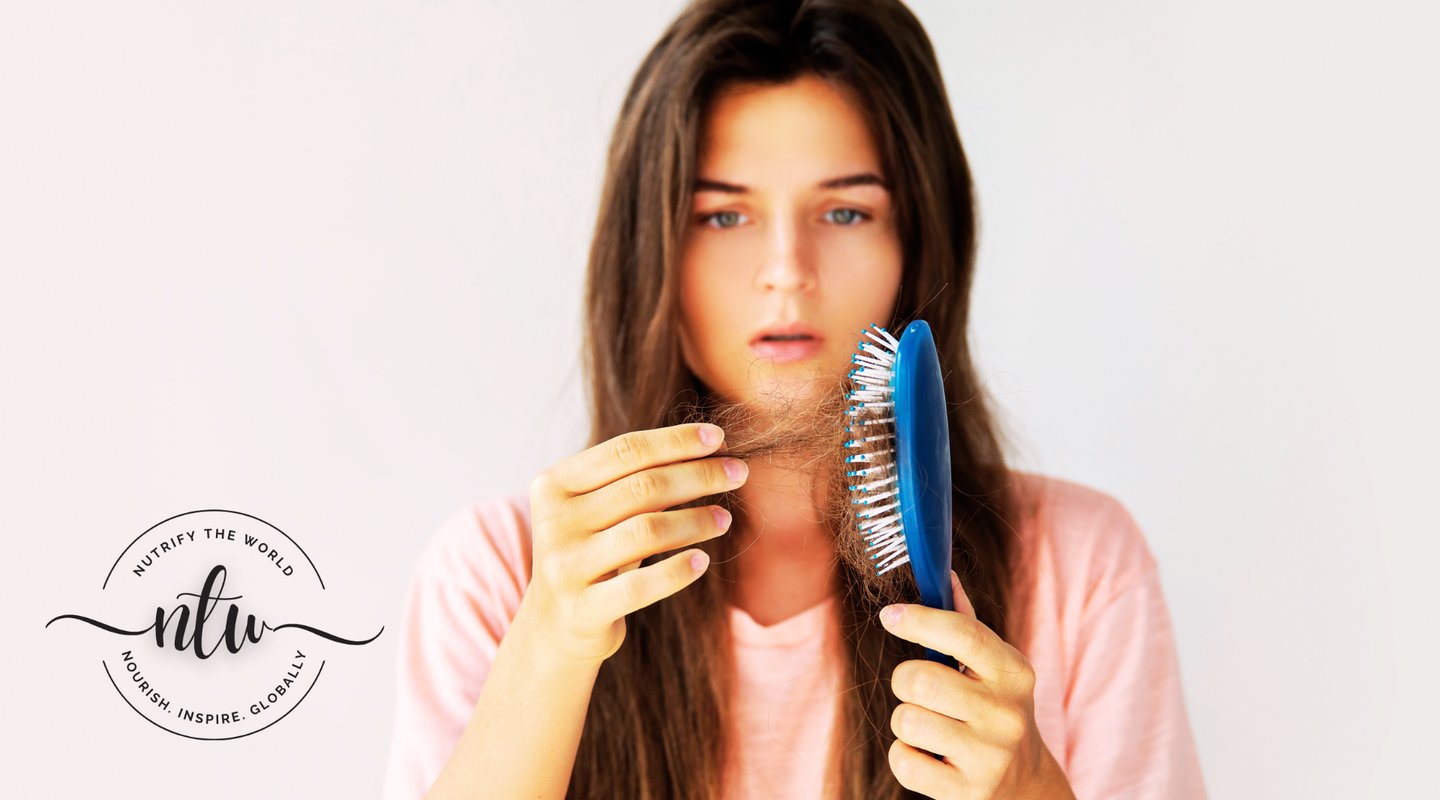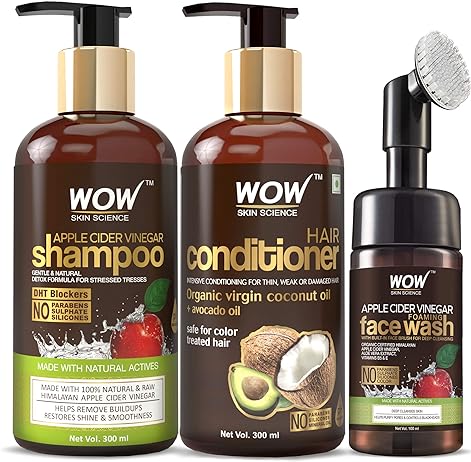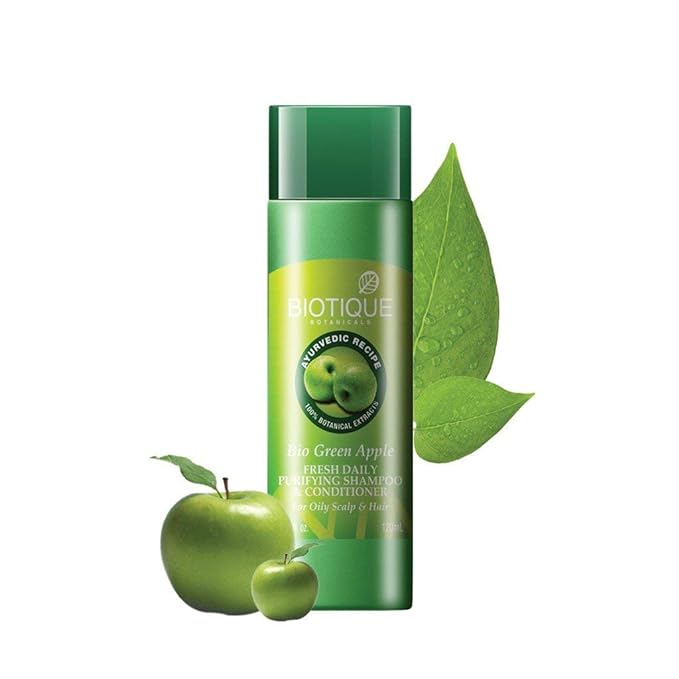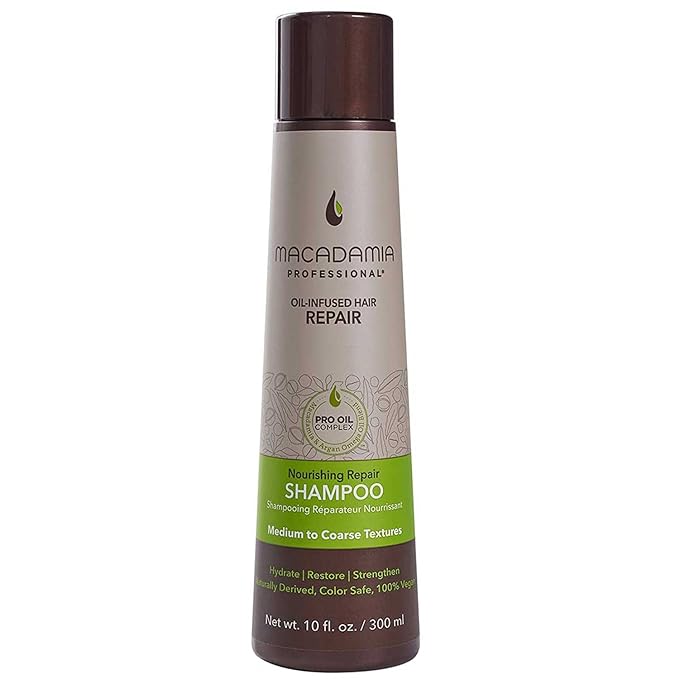Why Am I Losing My Hair? Exploring Female Hair Loss Causes and Solutions
By addressing hair loss openly and proactively, women can find effective solutions and regain their self-esteem and sense of well-being.


Hair loss is a distressing experience for many women, often affecting self-esteem and emotional well-being. While hair loss is commonly associated with men, it is a significant issue for millions of women worldwide. Understanding the causes and solutions can help manage and even reverse this condition. This article explores the reasons behind female hair loss and offers practical, effective, and time-tested tips for treatment and prevention.
Understanding Hair Loss in Women
Hair loss, or alopecia, can manifest in various ways, from overall thinning to bald patches. It's normal to lose about 50 to 100 hairs a day, but excessive hair loss can be alarming. Several factors contribute to hair loss in women, including genetics, hormonal changes, medical conditions, medications, and lifestyle choices.
Causes of Hair Loss in Women
1. Genetics: Genetic hair loss, or androgenetic alopecia, is the most common cause of hair loss in women. It typically presents as diffuse thinning on the crown and frontal scalp. This condition is hereditary and can be inherited from either parent.
2. Hormonal Changes: Hormonal fluctuations due to pregnancy, childbirth, menopause, and thyroid problems can cause hair loss. Pregnancy-related hair loss usually occurs postpartum, while menopause can trigger thinning hair due to decreased estrogen levels.
3. Medical Conditions: Several medical conditions can lead to hair loss:
Alopecia Areata: An autoimmune disorder where the immune system attacks hair follicles, causing round patches of hair loss.
Polycystic Ovary Syndrome (PCOS): Causes hormonal imbalance, leading to hair thinning.
Thyroid Disorders: Both hypothyroidism and hyperthyroidism can cause hair shedding.
Scalp Infections: Fungal infections like ringworm can lead to hair loss.
4. Medications: Certain medications have side effects that include hair loss. These medications include those used for treating cancer, arthritis, depression, heart problems, and high blood pressure. Chemotherapy is well-known for causing hair loss.
5. Lifestyle Factors: Stress, poor diet, and hair styling habits contribute to hair loss. High-stress levels can push hair follicles into a resting phase, leading to shedding. Nutrient deficiencies, especially in iron, zinc, and vitamins, can weaken hair. Frequent use of heat styling tools, tight hairstyles, and chemical treatments can damage hair and cause it to fall out.
Symptoms and Diagnosis
Recognizing the signs of hair loss early can help in seeking timely treatment. Symptoms include:
Gradual thinning on the top of the head.
Circular or patchy bald spots.
Sudden loosening of hair.
Full-body hair loss, often due to medical treatments like chemotherapy.
Patches of scaling that spread over the scalp, which could indicate a fungal infection.
Diagnosis: To diagnose the cause of hair loss, doctors may perform several tests:
Blood Tests: To identify underlying medical conditions.
Scalp Biopsy: To examine hair follicles.
Medical History Review: To identify patterns and potential causes of hair loss.
Emotional and Psychological Impact
Hair loss can have profound emotional and psychological effects on women. It often leads to decreased self-esteem, social anxiety, and depression. Many women feel isolated and self-conscious about their appearance, which can affect their quality of life. Personal stories highlight the emotional toll; for instance, one woman shared how she avoided social gatherings and wore hats constantly to hide her thinning hair.
Natural Remedies:
Diet Changes: A balanced diet rich in vitamins and minerals is essential for healthy hair. Key nutrients include iron, zinc, and vitamins A, D, and E. Foods that promote hair health include leafy greens, nuts, seeds, fish, and eggs.
Practical Tips:
Incorporate a variety of fruits and vegetables into your diet.
Include lean proteins such as chicken, fish, and beans.
Add nuts and seeds like almonds and flaxseeds for essential fatty acids.
Drink plenty of water to stay hydrated.
Essential Oils: Essential oils like rosemary, peppermint, and lavender can improve scalp health and promote hair growth. These oils have anti-inflammatory and antimicrobial properties that can benefit hair follicles.
How to Use:
Dilute a few drops of essential oil in a carrier oil (e.g., coconut or jojoba oil).
Massage into the scalp for 5-10 minutes.
Leave it on for at least 30 minutes before washing out.
Repeat 2-3 times a week for best results.
Supplements: Supplements like biotin, vitamin D, and omega-3 fatty acids can support hair health. Biotin, in particular, is known for strengthening hair and nails.
How to Use:
Consult with a healthcare provider before starting any new supplement.
Follow the recommended dosage on the supplement label.
Combine supplements with a balanced diet for optimal results.
Lifestyle Adjustments:
Stress Management: Stress is a significant factor in hair loss, as it can push hair follicles into a resting phase. Managing stress through techniques like yoga, meditation, and regular exercise can positively affect hair health.
Practical Tips:
Practice deep breathing exercises daily.
Engage in physical activities like walking, swimming, or yoga.
Set aside time for hobbies and activities you enjoy.
Ensure adequate sleep to support overall health.
Gentle Hair Care: Adopting gentle hair care practices can prevent further damage to your hair. This includes avoiding tight hairstyles, minimizing heat styling, and using mild shampoos and conditioners.
Practical Tips:
Use a wide-toothed comb to detangle wet hair.
Avoid tight ponytails, braids, or buns that pull on the hair.
Limit the use of heat styling tools; use the lowest heat setting if necessary.
Choose sulfate-free shampoos and conditioners to reduce scalp irritation.
Air-dry hair whenever possible or use a microfiber towel to gently pat dry.
Prevention Tips
While not all hair loss can be prevented, certain practices can minimize the risk:
Maintain a Balanced Diet: Ensure your diet is rich in essential nutrients to support overall health and hair strength. Focus on a variety of fruits, vegetables, lean proteins, and healthy fats.
Use Gentle Hair Care Products: Avoid harsh treatments and opt for sulfate-free shampoos and conditioners. Look for products formulated for your hair type and specific needs.
Manage Stress: Practice relaxation techniques like deep breathing, meditation, or engaging in hobbies that reduce stress. Regular physical activity and adequate sleep also contribute to stress management.
Regular Medical Check-ups: Monitor overall health to catch any underlying conditions that could lead to hair loss. Regular visits to your healthcare provider can help detect and treat issues early.
Expert Opinions
1. Dr. Rashmi Shetty, MD (Dermatology), FAAD, DNB
Expertise: Dr. Rashmi Shetty is a renowned dermatologist and aesthetic physician based in Mumbai, India. She holds a Master's degree in Dermatology and is a Fellow of the American Academy of Dermatology (FAAD). With over 15 years of experience, Dr. Shetty specializes in advanced skincare treatments and has garnered recognition for her expertise in hair restoration procedures.
Opinion: "Sulfate-free shampoos are an excellent choice for women experiencing hair loss and scalp irritation. Sulfates can strip the natural oils from the scalp, leading to dryness and irritation, which can exacerbate hair loss. By using sulfate-free products, you can maintain the natural moisture balance of the scalp, which is essential for healthy hair growth. Additionally, incorporating natural ingredients like amla, bhringraj, and reetha can provide nourishment and strengthen the hair from the roots."
2. Dr. Aparna Santhanam, MBBS, MD (Dermatology)
Expertise: Dr. Aparna Santhanam is a leading dermatologist and author based in Chennai, India. She completed her medical education from reputed institutions and pursued her specialization in Dermatology. Dr. Santhanam is a prolific author, having penned several books on skincare and haircare. She is known for her evidence-based approach to dermatology and frequently shares her insights on hair health through various media platforms.
Opinion: "Hair loss in women can be caused by a variety of factors, including hormonal changes, nutritional deficiencies, and stress. Using sulfate-free shampoos is a step in the right direction as they are gentler on the scalp and hair. Look for products that contain natural extracts like aloe vera, coconut milk, and green tea, which can soothe the scalp and provide essential nutrients. Consistent use of these products, along with a balanced diet and proper hair care routine, can significantly improve hair health and reduce hair fall."
3. Dr. Rinky Kapoor, MBBS, DDV, FCPS, DNB
Expertise: Dr. Rinky Kapoor is a leading dermatologist, dermato-surgeon, and aesthetic physician based in Mumbai, India. She is a co-founder of The Esthetic Clinics, a chain of specialty clinics offering advanced skincare and haircare treatments. Dr. Kapoor holds multiple degrees in Dermatology and has undergone specialized training in cosmetic dermatology and dermatosurgery from prestigious institutions.
Opinion: "Many women overlook the importance of using the right shampoo for their hair type and scalp condition. Sulfate-free shampoos are particularly beneficial for those with sensitive scalps or who are experiencing hair thinning and loss. These shampoos are less likely to cause irritation and help in preserving the scalp's natural oils, which are crucial for hair health. Combining sulfate-free shampoos with treatments like minoxidil or platelet-rich plasma (PRP) therapy can offer comprehensive care for hair loss. Additionally, lifestyle modifications such as reducing stress, maintaining a healthy diet, and avoiding harsh chemical treatments can further enhance hair growth and overall hair quality."
Practical Tips for Using Sulfate-Free Products:
Transition Period: When switching to sulfate-free shampoos, your hair might take some time to adjust. During the initial phase, you might notice a difference in lather and texture, but this will improve with continued use.
Application: Apply the shampoo to wet hair and gently massage the scalp with your fingertips. Avoid using your nails to prevent scalp irritation.
Rinse Thoroughly: Ensure you rinse your hair thoroughly to remove all product residue. This helps prevent buildup, which can weigh down your hair.
Use Conditioner: Always follow with a conditioner, focusing on the mid-lengths to ends of your hair. Leave it on for a few minutes before rinsing out.
Regular Use: For best results, use sulfate-free products regularly. Pairing the shampoo with its matching conditioner can enhance the benefits.
Switching to sulfate-free shampoos and conditioners can make a significant difference in reducing scalp irritation and maintaining healthier, more vibrant hair.
Conclusion
Hair loss in women is a common yet often silent issue. By understanding the causes, recognizing the symptoms, and exploring various treatment options, women can take proactive steps towards managing and overcoming hair loss. Remember, seeking professional help is vital, and with the right support, it’s possible to restore not just your hair, but your confidence as well.
WOW Skin Science Apple Cider Vinegar Shampoo and Conditioner
The WOW Skin Science Apple Cider Vinegar Shampoo and Conditioner is a game-changer for anyone struggling with hair issues. Personally, this duo has transformed my hair care routine. The shampoo gently cleanses the scalp without stripping away its natural oils, leaving my hair feeling fresh and rejuvenated. The conditioner is a perfect companion, providing deep hydration and leaving my hair silky smooth.
What sets this product apart is its natural formulation. With ingredients like apple cider vinegar, almond oil, and argan oil, it not only cleanses and nourishes but also promotes hair growth and scalp health. I've noticed a significant reduction in dandruff and scalp irritation since using this shampoo and conditioner.
Moreover, the fragrance is refreshing, and a little goes a long way, making it a cost-effective choice. The packaging is sleek and convenient, ideal for travel or everyday use.
Overall, I highly recommend the WOW Skin Science Apple Cider Vinegar Shampoo and Conditioner to anyone looking for a natural, effective solution to their hair care needs. It's truly a game-changer!


Biotique Bio Green Apple Fresh Daily Purifying Shampoo & Conditioner
The Biotique Bio Green Apple Shampoo and Conditioner is a refreshing and effective hair care duo that has become a staple in my routine. The shampoo, infused with green apple extract, cleanses the scalp thoroughly, removing impurities and excess oil without stripping away essential moisture. It leaves my hair feeling clean, light, and revitalized. The accompanying conditioner is a perfect complement, providing deep hydration and nourishment to my hair. It helps in detangling and softening my locks, making them more manageable and silky smooth. The natural ingredients in both products, such as green apple and sea algae, contribute to healthier and stronger hair over time.
I appreciate that these products are free from harmful chemicals like sulfates and parabens, making them gentle and suitable for daily use. The refreshing scent of green apples adds to the overall experience, leaving my hair smelling delightful throughout the day. Overall, I highly recommend the Biotique Bio Green Apple Shampoo and Conditioner to anyone looking for a natural and effective hair care solution. It's a rejuvenating experience for both the hair and the senses.


Macadamia Professional Nourishing Repair Shampoo
The Macadamia Professional Nourishing Moisture Shampoo is a luxurious treat for dry and damaged hair. Infused with macadamia oil and argan oil, it deeply hydrates and replenishes moisture, leaving hair feeling soft, smooth, and nourished. I noticed a significant improvement in the texture of my hair after just a few uses. The shampoo lathers well and has a delightful scent that lingers throughout the day. It effectively cleanses the scalp without stripping away natural oils, making it suitable for daily use. Additionally, the sleek packaging is convenient and aesthetically pleasing. Overall, I highly recommend the Macadamia Professional Nourishing Moisture Shampoo to anyone looking to revive their dry and damaged locks. It's a salon-quality product that delivers impressive results.


Disclaimer:
The information provided on NutrifyTheWorld blog is for educational and informational purposes only. It is not intended as a substitute for professional medical advice, diagnosis, or treatment. Always seek the advice of your physician or other qualified health provider with any questions you may have regarding a medical condition. Never disregard professional medical advice or delay in seeking it because of something you have read on NutrifyTheWorld blog.
The opinions expressed by the experts in this article are their own and do not necessarily reflect the views of NutrifyTheWorld or its affiliates. Product recommendations are based on research and personal experiences, but individual results may vary. Before using any product mentioned on NutrifyTheWorld blog, please read the label and consult with a healthcare professional to ensure it is suitable for your specific needs and conditions.
We do not endorse or promote any specific brand or product mentioned on NutrifyTheWorld blog. Any reliance you place on the information provided is at your own risk. NutrifyTheWorld shall not be liable for any loss or damage arising from the use of information on its blog.


